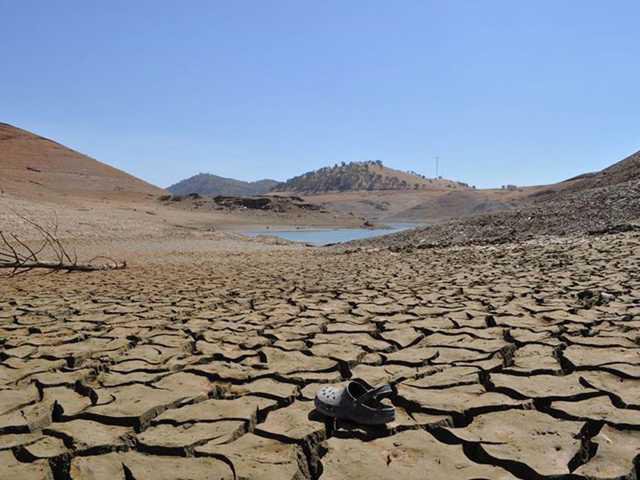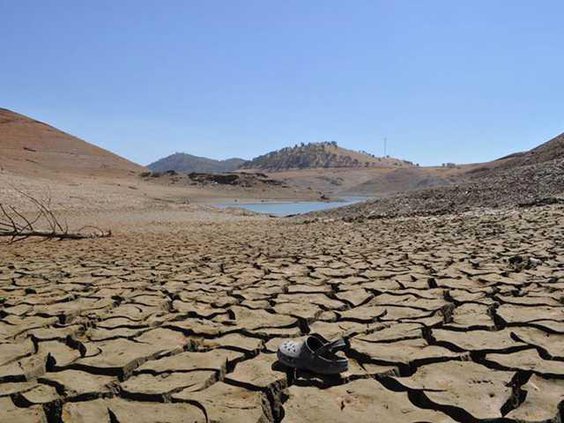The South San Joaquin Irrigation District is not going to sign documents that say they will comply with the curtailment order issued to pre-1914 water right holders nearly two weeks ago by the state Department of Water Resources.
SSJID General Manager Jeff Shields responded with an emphatic “no” when asked whether he would be putting his signature on the state generated document that carries the full force of prosecution for perjury.
That decision comes on the heels of the state Attorney General Office’s response to lawsuits — this time in Stanislaus County Superior County on Wednesday — that the curtailment orders were only “advisory” and were basically “courtesy notices.”
Shields pointed out that the courtesy notice stance contrasts sharply with the state demand made nearly two weeks ago that pre-1914 water right holders such as SSJID sign off that they are complying or face prosecution.
Shields noted the Department of Water Resources made it clear from the start that the curtailment notice was mandatory.
“If it was advisory then they shouldn’t have threatened fines,” Shields said.
Water Resources spokesman
contends districts
are ‘confused’
Department of Water Resources spokesman George Kostyrko in a statement Wednesday contended that the irrigation districts are confused.
“There appears to be some confusion about what the Board’s recent notices of water unavailability (curtailment notices) are and require,” Kostyrko typed in an email. “This confusion is based on misunderstandings of recent state court filings in response to requests by Central Valley irrigation districts for local courts to stop the State Water Board’s curtailment notifications of senior water right holders as of June 12.
Shields pointed out that that the Attorney General is the legal representative of the state, and not the Department of Water Resources.
But perhaps the most significant point the Attorney General’s office made was stating in its court filings both in San Joaquin County on Tuesday and Stanislaus County on Wednesday that the water resources board couldn’t take curtailment action legally without due process.
That means someone has to claim they are being injured by SSJID and others that have pre-1914 water rights secured and adjudicated under state law and the California constitution.
Essentially it means someone that holds superior water rights to those that the state targeted that date back to 1904 to 1914 must make a complaint that their water is being commandeered illegally.
The filing by the Attorney General’s Office brings into question the curtailment order against those with post-1914 rights and whether it has any legal teeth.
The only people that they can injure in terms of water use are those with pre-1914 water rights that are superior.
The previous curtailment order directed at post-1914 water right holders has generated only 31 percent compliance so far statewide.
Email notices going
out soon to water
right holders
Kostyrko also indicated an email notice will be going out soon to water right holders who have received notices of curtailment and have not yet responded with curtailment certification forms.
“The information provided on the form is important to help the State Water Board effectively protect senior water rights and administer the state’s water right priority system during a drought,” he noted. “Based on the answers provided on the form, the State Water Board may not need to inspect a particular diverter. Also, if a diverter identifies that the curtailed water right is the sole source of water for health and safety needs, the State Water Board can assist the diverter in finding alternative water supplies, or determine that enforcement discretion is warranted.”
Kostryko stressed the State Water Board is currently in the field to determine if unauthorized diversions are actually taking place. These inspections are based on all information available to the Board.
He indicated unauthorized diversions are subject to enhanced penalties pursuant to the 2014 emergency legislation to protect water supplies during the drought emergency. Under Water Code section 1052, diversions when no water is available under established water rights constitutes an unauthorized diversion and a trespass.
Under Water Code section 1052, unauthorized diversions are subject to penalties by the Board or a court. Violations are subject to fines up to $1,000 per day and $2,500 per acre-foot of water unlawfully diverted, cease and desist orders, or prosecution in court.
SSJID wont sign curtailment documents





